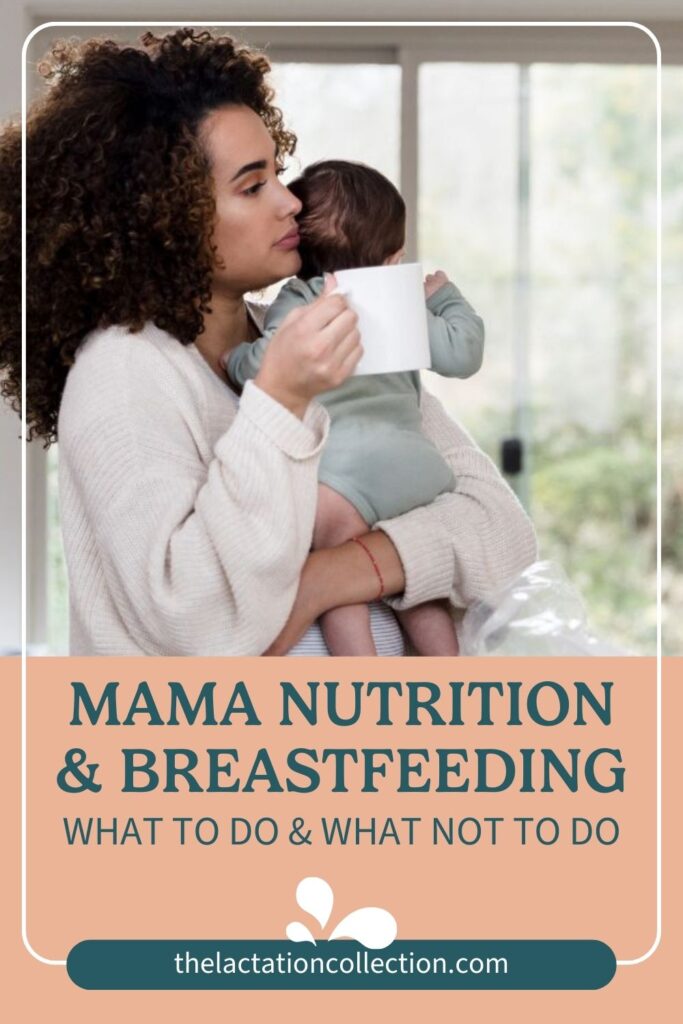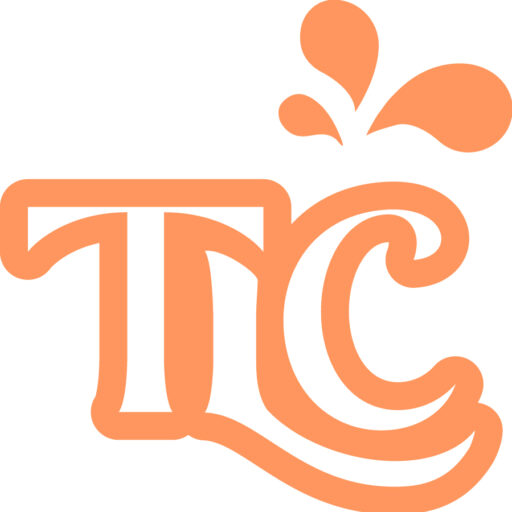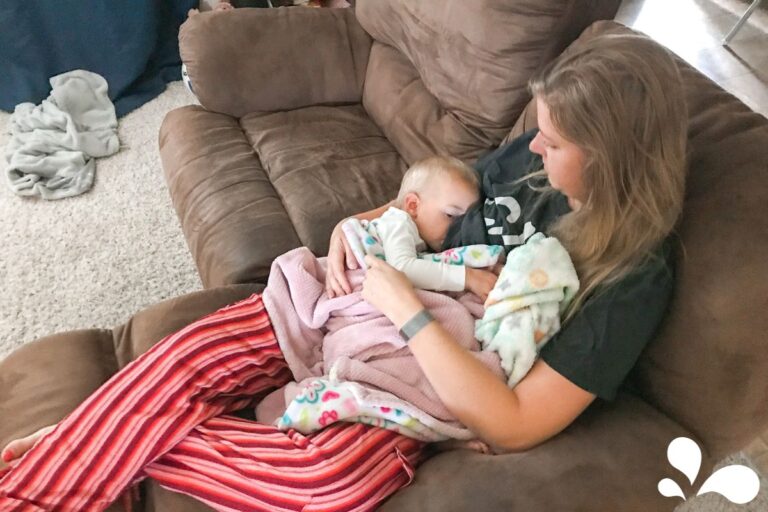For better or worse, there is no “perfect diet” to follow while breastfeeding.
Breastfeeding burns an extra 300-500 calories a day (per baby you are breastfeeding), and you may need to increase your food intake to make up for that. It’s essential to keep yourself fed even though having a new baby can sometimes keep you so busy you forget to eat. An easy way to make sure that you’re feeding yourself is to feed yourself when you feed baby.
After all, if you eat poorly, it’s more likely to negatively impact your health rather than your baby’s. It’s good to implement solid nutrition practices while breastfeeding. Read on to learn more.

Nutrition Recommendations for Breastfeeding:
Calories
Listen to your body and eat to satisfy your appetite. You don’t need to force food on yourself, but be sure to get at least three solid meals throughout the day—your health matters.
Liquids
Water
Drink to thirst. There is no need to force fluids. A general rule of thumb is to drink about half as many ounces of water as you weigh—if you weigh 150 lbs, you should drink about 75 ounces of water daily. If you’re worried about not getting enough liquid, always keep water with you and drink when you feel like it. By merely having water nearby, you’re more likely to drink more.

Caffeine
You’ll want to limit your caffeine intake, but you don’t need to cut it completely.
You’ll want to keep it to about 300mg/day, which equals about 2-3 cups of coffee or 72 ounces of a diet caffeinated soda.
Caffeine does pass through the breastmilk, so you may want to avoid caffeine intake within several hours of putting baby to bed at night unless you care to have your baby more awake at night, which you likely do not.
Alcohol
Drinking alcohol as a breastfeeding mama is okay so long as you drink alcohol only occasionally in small amounts. It is recommended to feed baby right before drinking a small amount, and then breastmilk should be clear of alcohol within 2-3 hours (approximately when baby’s next feeding would be). If it’s a small amount, then you shouldn’t have to “pump and dump” your breastmilk.
However, if you drink enough not to drive, you’ll likely need to pump and dump. If you’re worried that there is too much alcohol in your breast milk, there are products such as these testing strips to provide peace of mind.

Food Restrictions
There are NO foods that should be avoided entirely simply because you are breastfeeding. Eat what your body needs, and be sure to enjoy your food.
Fish
Avoid eating large amounts of fish that may be high in mercury. The most commonly eaten fish that is high in mercury is bluefin tuna. Other seafood that has high amounts of mercury include shark, swordfish, orange roughy, and barramundi.
Vitamins
Vitamins are not essential as long as you have a well-balanced diet. A well-balanced diet can be accomplished by incorporating fruits, vegetables, carbohydrates, fat, and protein into your daily nutrition.
Food Sensitivities
Though it’s not common, your baby may react to a particular food. If you notice that your baby is having a reaction each time you eat any given food, then try eliminating it from your diet. The most common food sensitivities for babies include dairy, soy, wheat, corn, eggs, and peanuts. If you suspect an allergy, be sure to consult with your baby’s pediatrician.








